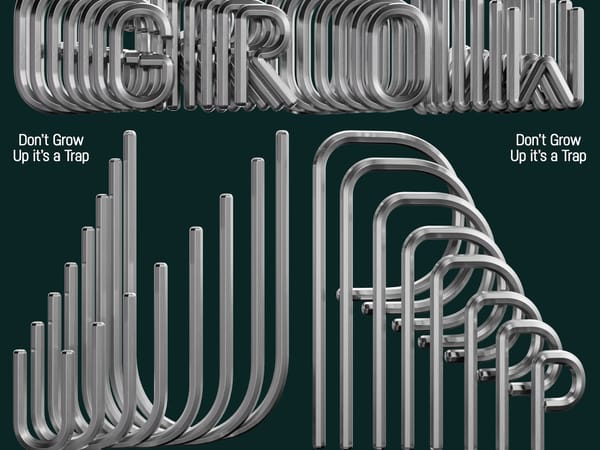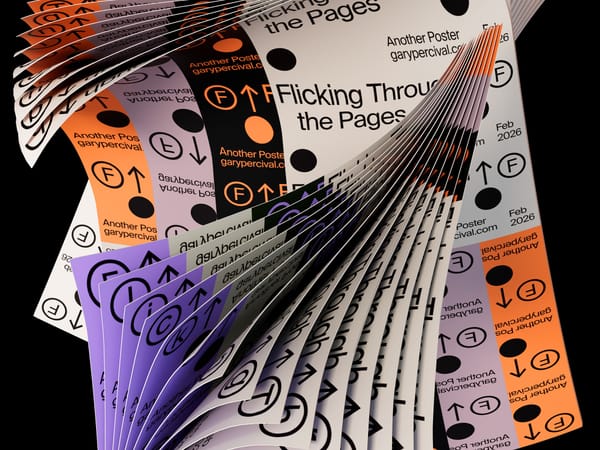The Art of Sharing: Why 'Sharing is Caring' Is More Than Just a Saying
“By sharing your knowledge, skills, and resources, you’re not diminishing your own value—you’re exponentially increasing it, building a reputation, expanding your network, and fostering innovation.”

In the fiercely competitive world of freelancing and creative work, sharing might seem like a risky move. After all, aren't we taught to protect our ideas, guard our client lists, and keep our best techniques close to our chests?
But what if sharing could be the key to unlocking new opportunities, fostering innovation, and building a thriving community?
Let's explore why the old adage "sharing is caring" is more than just a cute phrase; it's a powerful principle that can transform your career and the creative industry as a whole.
The Power of Open Source Thinking
Remember when you first started out? Those countless hours spent scouring the internet for tutorials, downloading free resources, and learning from others' experiences? That was sharing in action, and it likely played a crucial role in your growth as a professional.
The open-source movement in software development has shown us the incredible potential of collaborative creation. When people freely share their knowledge and work, entire ecosystems of innovation can flourish.
This principle extends far beyond coding; it applies to all creative fields.
Consider the explosion of design resources available online. From font libraries to vector illustrations, these shared assets have democratised design, allowing newcomers to create professional-looking work and experienced designers to streamline their processes.
By contributing to this pool of resources, you're not just helping others; you're participating in the evolution of your field.
Building a Reputation Through Generosity
Your most valuable tool in the digital era is your reputation. And surprisingly, one of the best ways to build a stellar reputation is through generosity.
When you freely share your knowledge, insights, and even some of your work, you position yourself as an expert and a valuable community member.
Creating Connections: The Multiplier Effect of Sharing
Sharing creates connections. When you share your work, thoughts, or resources, you're not just putting content out into the void; you're opening doors for conversation and collaboration.
Imagine you've just posted a detailed breakdown of your logo design process on your blog. A fellow designer reaches out to discuss your approach, leading to a fruitful exchange of ideas. A potential client sees the post and is impressed by your transparency and expertise. A design student is inspired and shares your post with their class.
Each act of sharing multiplies your network exponentially. In a field where many opportunities come through word-of-mouth and personal connections, this network expansion is invaluable.
Beyond networking, sharing can position you as a mentor or a leader in your field. Offering guidance to younger creatives through blog posts, tutorials, or portfolio reviews not only strengthens the creative community but also boosts your credibility. As you give back, you become someone others look to for advice, opening doors to mentorship and leadership roles that can elevate your career.
Accelerating Innovation Through Collaboration
Innovation rarely happens in a vacuum. The most groundbreaking ideas often come from the collision of different perspectives and disciplines.
By sharing your work and ideas, you invite this collision.
Consider the evolution of design trends. When designers share their work on platforms like Behance or Dribbble, they're not just showcasing their portfolios; they're contributing to a global conversation about design. Ideas cross-pollinate, trends emerge, and the entire field moves forward.
This collaborative innovation isn't limited to visual trends. Shared knowledge about new tools, techniques, and business practices helps the entire industry evolve. By participating in this exchange, you ensure that you're not left behind as your field advances.
The Personal Growth Paradox
Here's a paradox for you: the more you share, the more you grow. It might seem logical that keeping your knowledge to yourself would give you a competitive edge. However, sharing can lead to significant personal growth.
Articulating Your Ideas
When you write a tutorial or create a presentation, you must break down your intuitive processes into clear, logical steps. This forces you to reflect deeply on your methods and articulate them in a way that others can understand.
Engaging with Feedback
Sharing your work invites feedback, which can be daunting but also incredibly valuable. The questions, critiques, and alternative viewpoints you receive challenge your assumptions and encourage you to refine your skills.
Reflecting on Your Work
The process of sharing often leads to new insights and realisations about your own work. By engaging with others and reflecting on their responses, you gain a deeper understanding of your craft and how it can evolve.
Overcoming the Fear of Sharing
Despite all these benefits, many creatives still hesitate to share. The fears are understandable: What if someone steals my idea? What if I'm criticised? What if I reveal how much I don't know?
Let's address these fears head-on:
- Fear of Idea Theft: Ideas are abundant; execution is rare. Your unique perspective and skills are what make your work valuable, not the initial idea.
- Fear of Criticism: Constructive criticism is a gift. It helps you improve and shows that people are engaged with your work. As for unconstructive criticism, develop a thick skin, and remember, it says more about the critic than about you.
- Fear of Exposing Knowledge Gaps: Showing vulnerability can actually enhance your credibility. It demonstrates honesty and a willingness to learn—both admirable qualities in any professional.
Practical Ways to Embrace the Art of Sharing
Are you ready to dip your toes into the shared economy? Here are some practical methods to get started:
- Write a blog post about a recent project, detailing your process and lessons learnt.
- Share a helpful resource you've created, like a template or a script, on a platform like GitHub or your own website.
- Offer to give a talk at a local meetup or conference about a topic you're knowledgeable about.
- Mentor a junior designer or participate in portfolio reviews.
- Contribute to online discussions in forums or social media groups related to your field.
- Collaborate on a pro bono project for a cause you care about, and share the results and process.
Remember, sharing doesn't mean giving away everything. It's about finding a balance that feels comfortable to you while still contributing to the community.
The Ripple Effect of Generosity
As you embrace the art of sharing, you'll likely find that the benefits extend far beyond your professional life. The habit of generosity, once cultivated, tends to permeate all aspects of life.
You might find yourself more open to sharing in your personal relationships, leading to deeper connections. You could become more involved in your local community, sharing your skills for the greater good. The creativity and problem-solving skills you use in your work might be applied to addressing social issues you care about.
In essence, by embracing sharing in your professional life, you're contributing to a broader culture of generosity and collaboration. In a world that often seems driven by competition and scarcity, this shift towards abundance thinking can have profound effects.
Conclusion: A New Paradigm for Success
In the end, "sharing is caring" is more than a cute saying; it's a philosophy that can transform your career and your industry. By sharing your knowledge, skills, and resources, you're not diminishing your own value. Instead, you're enhancing it. You're building a reputation, expanding your network, fostering innovation, and contributing to a supportive community.
This doesn't mean you should give away all your hard-earned knowledge for free or neglect to protect your intellectual property when necessary. It's about finding a balance that allows you to contribute to the greater good while still building a sustainable career.
As you move forward in your creative journey, challenge yourself to find ways to share more openly. Whether it's through teaching, collaborating, or simply being more transparent about your processes, embrace the art of sharing. You might discover that the more you give, the more you get in return.
Remember, in the creative world, a rising tide lifts all boats. By sharing generously, you're not just advancing your own career; you're helping to create a more vibrant, innovative, and supportive industry for all.
And that's something truly worth caring about.



